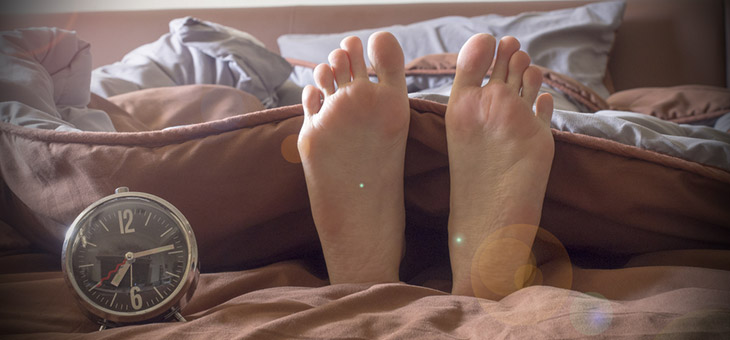Travel offers wonderful experiences and interesting challenges – one of them being adjusting to new time zones. And as we get older, our body’s ability to readjust quickly seems to decrease – especially when we arrive back home.
So how do you reset your body clock?
Everyone has a unique body clock that controls their ‘circadian rhythm’ – a natural pattern of waking and sleeping. Circadian rhythms dictate when we should get tired and when we should wake up.
When you experience insomnia or broken sleep as a result of international travel – or any reason – it means your circadian rhythm has been disrupted. This can occur through any number of factors aside from travel, including:
- having an irregular bedtime schedule
- experiencing stress or depression
- health disorders (such as obesity, diabetes, seasonal affective disorder, among others).
The good news is that it’s simple enough to get your sleep back on track. There are several techniques you can use to restore your body clock.
1. Make use of the light
Light tells the body when to wake up and encourages cortisol production in the brain. Your circadian rhythm relies on light to regulate itself. Some people find it difficult to sleep in winter because they aren’t getting as much sunlight – this can make their body clocks fall out of synch.
In the mornings, throw open the curtains to let the natural light in, turn on bright lights and take a walk outside.
2. Get enough exercise
Exercise is a great way to use up excess energy, trim fat, strengthen bones and build muscle. Just a little exercise can be enough to help tire you out and get a good night’s sleep. People who exercise for at least 150 minutes each week sleep better at night and have more energy during the day.
Any exercise is great. Even if you’re unable to do certain activities or you can’t afford to join a gym, going for a long walk, using small hand weights at home or stretching is perfectly fine.
3. Adjust your bedtime
If you want to regulate your sleeping pattern, the first change you should make is to wake up at the same time each day – no matter what time you go to sleep. When you wake up at irregular hours, your body loses its intuition to know when it’s supposed to make you tired. Getting up at the same time every day helps train your body and mind to wind down at the right time each night too.
Most of us love a weekend sleep-in but when you’ve had good quality sleep during the week, you won’t need those weekend sleep-ins.
4. Put the electronics away
Because your circadian rhythm is linked to light, flooding your vision with your smartphone’s backlight and your computer/television screens can trick your brain into thinking it’s ‘wake up’ time instead of bedtime.
It’s important to create an atmosphere conducive to sleeping, rather than expect your mind and body to ‘switch off’ instantly. One hour before bed time, shut down your electronics and dim the lights in your home.
5. Pay attention to what you eat
Your brain isn’t the only clock in your body. Your liver, pancreas and other organs have clocks that respond to food. The wrong foods eaten at the wrong times can throw these clocks out of rhythm.
When you eat heavy foods late at night, your body doesn’t have a chance to process it, so it’s likely to end up stored in your body as excess energy (read: fat). Having a light supper is not only better for your sleep, but your waistline too.
Does overseas travel play havoc with your body clock? Has that become worse as you’ve aged?
Related articles:
Why do I wake up during the night?
All your sleep questions answered
How to wake up earlier

